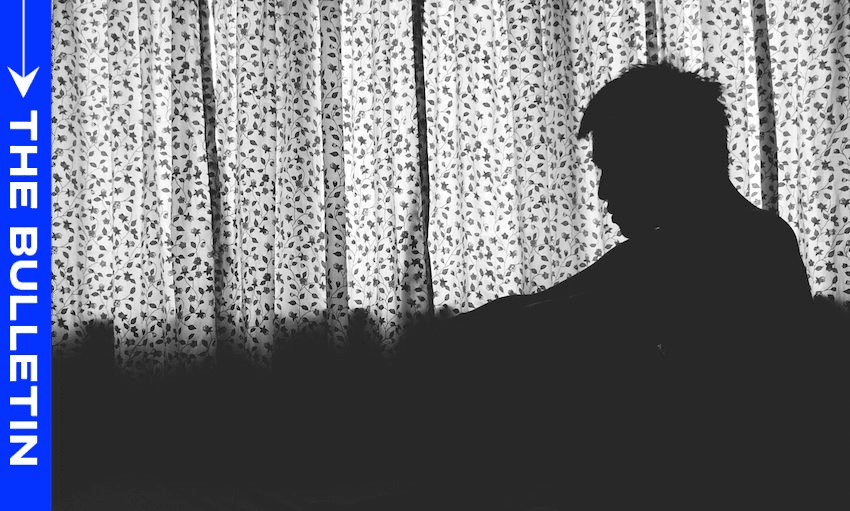The number of suspected suicides rose from 566 in the year to June 2023 up to 617, writes Stewart Sowman-Lund in an extract from The Bulletin.
To receive The Bulletin in full each weekday, sign up here.
Little change in suspected suicide statistics
Tomorrow evening, consultation closes on the second draft Suicide Prevention Action plan for 2025-2029. As described by the Ministry of Health, the action plan will assist with a “national approach” to suicide prevention which has been under way since 2019 when the first five-year plan was launched. Researchers, in a briefing published by the Public Health Communication Centre earlier this month, called the consultation period a chance to craft a suicide prevention plan that is “transformative rather than additive and acknowledges that the solutions required to prevent suicide are broad and far-reaching”.
It’s timely given that the latest annual data on suspected suicides was released yesterday. The Post reported that the number of suspected suicides in the year to June 2024 rose from 566 the year previous to 617, nearly twice the road toll over the same period. While the figures are indeed up, the chief coroner, in a statement reported here by RNZ, noted that the overall statistical rate of suicide had not changed as “fluctuations in rates from year to year are common in suicide data”. While the suspected rate of self-inflicted deaths was 3.6% lower than the average rate over the last 15 financial years, this was “not a statistically significant difference”.
The broader focus
The latest figures may just be provisional, but they do little to suggest things are improving. As reported by the Herald’s Katie Oliver, they confirm that Māori continue to be disproportionately impacted by suicide. The provisional rate of suspected suicide for Māori is 16.3 per 100,000 people for year to June, while it is 11.2 per 100,000 overall.
In a statement shared here by NZ Doctor, the Mental Health Foundation’s Shaun Robinson urged for further investment in suicide prevention and said that the country’s standard of wellbeing needed to improve. “We also need strong national leadership and buy-in from across the political spectrum to make it happen,” he said. Mental health minister Matt Doocey told me, prior to last year’s election, that he intended to secure cross-party support for mental health initiatives. Since taking office, the Suicide Prevention Office established under Labour has been gutted and RNZ’s Samantha Mythen reported that government agencies were “limited” in what resources they could devote to the new Suicide Prevention Plan. Meanwhile, as we’ve previously discussed, the auditor general has expressed concerns with the government’s decision to inject $24m into Mike King’s Gumboot Friday charity.
‘The bleak reality’
Writing for The Spinoff this morning, Marton Counselling Centre manager Anna Sophia described the “bleak reality” of working in rural mental health when you don’t have a sudden influx of government funding. I highly recommend you set aside some time to read the piece in full. While the decision to fund Gumboot Friday and the charity itself come from a good place, Sophia’s report illustrates why it could see vulnerable people pushed to the wayside. The Counselling Centre has had its annual funding to provide counselling to children and young people slashed by recent Oranga Tamariki funding cuts, wrote Sophia, and it isn’t easy to continue securing funding for the centre.
“The role of counselling in contemporary Aotearoa, its effectiveness in practice, how it should be funded and who should be paying for it requires an in-depth consultation, that includes grassroots community networks like the Counselling Centre and not just a knee jerk reaction to paper over societal mental health unease with a $24m backroom handover to a self-created celebrity with very little experience in the field.”
Redress for Lake Alice survivors
Sophia’s centre is within the Rangitīkei district. She described how the notorious Lake Alice Hospital casts a shadow over the region. “For decades it played a dominant role in the region. For better or worse, conversations about mental health have always flowed easily in this part of the country,” she said.
It was confirmed yesterday, reported RNZ’s Giles Dexter, that the government was fulfilling one recommendation of the Royal Commission’s final report into abuse in state care regarding Lake Alice. In 2001, a settlement was reached with 95 survivors for $6.5m but the law firm representing the group deducted an estimated $2.6m in legal fees from what the survivors received in payments. Now, survivors will be reimbursed for those legal fees. Erica Stanford, the minister in charge of the response to the inquiry, described it as fixing a “decades-long historical injustice”. While the payments will be between $15,000 and $55,000, depending on the case, the redress will not take into account inflation over the two decades since the first settlements were reached. One survivor described that as “bullshit”.
The government will issue a full public apology to survivors on November 12. It’s expected that further details of redress for survivors will be made public around the same time.


